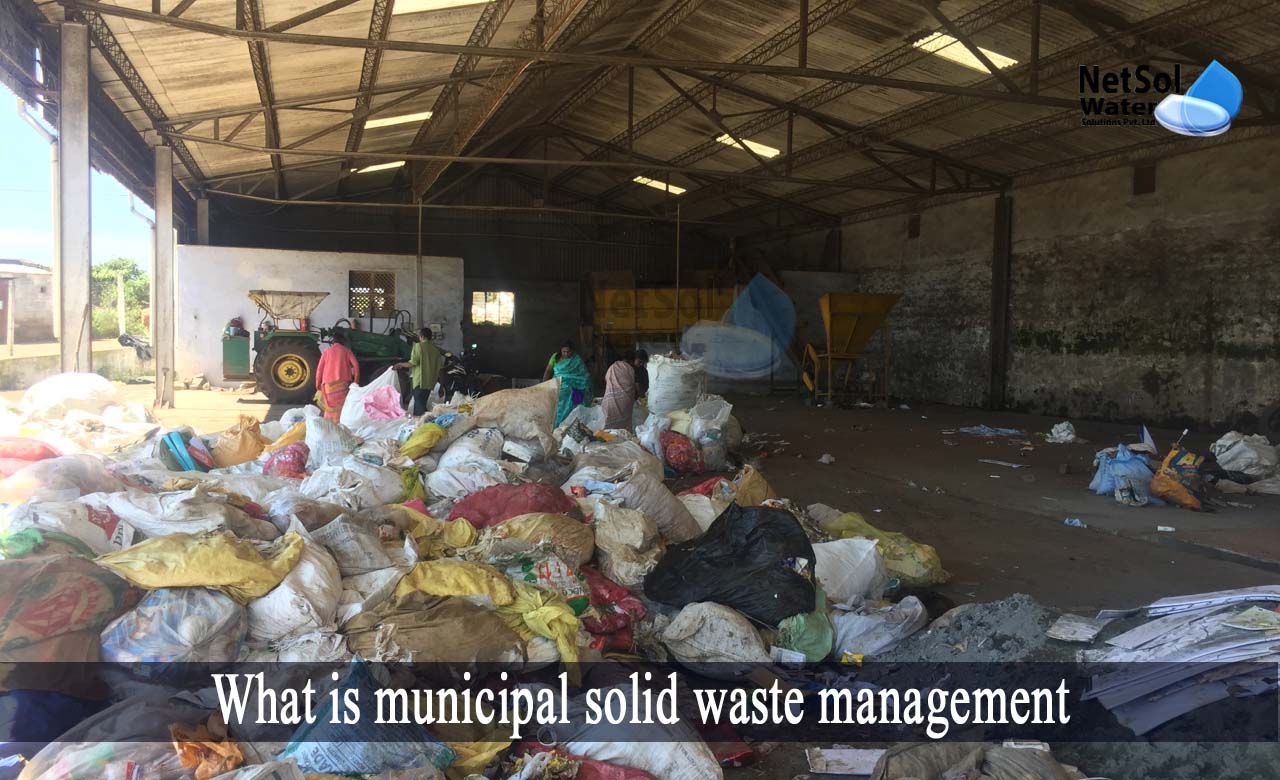What is municipal solid waste management?
Municipal solid waste is defined as commercial and domestic waste created in municipal or notified areas, in either solid or semi-solid form, excluding industrial hazardous waste but containing treated bio-medical waste.
Let us discuss how municipal solid waste is managed.
Municipal solid waste storage
Municipal authorities must develop and manage storage facilities in such a way, that they do not cause filthy and unhygienic circumstances around them.
When managing storage facilities, following criteria must be considered;
1: Storage facilities must be built and established while taking into account the amount of waste generated, in a specific location as well as population density. A storage facility must be located in a convenient location for users.
2: Storage facilities established by municipal authorities or any other agency must be designed, in such a way that wastes stored are not exposed to open air and are visually pleasing and user-friendly.
3: Storage facilities or 'bins' must be designed to be 'user-friendly' for waste processing, transfer, and transportation. Bins for biodegradable wastes must be painted green, those for recyclable wastes must be painted white, and those for other wastes must be painted black.
4: Manual waste handling is strictly banned. If manual handling is required owing to limits, it must be done with caution and with adequate regard for worker safety.
Processing of municipal solid wastes
Municipalities must deploy appropriate waste management technology or a mix of such technologies, to reduce the pressure on landfills.
The following requirements must be followed:
1: Composting, vermicomposting, anaerobic digestion, or any other acceptable biological waste stabilization procedure, shall be used for biodegradable wastes.
2: Mixed waste that contains recoverable resources must be recycled.
3: In some circumstances, waste can be processed via incineration with or without energy recovery.
Waste disposal at the source
|
Source of waste generation |
Action to be taken |
|
Household |
· It is forbidden to dispose of solid waste in the neighbourhood, on the streets, open spaces, and abandoned areas, or in drains or water bodies. · Store food and biodegradable waste in a non-corrosive container with a lid. · Place dry, recyclable waste in a bin, bag, or sack. · Separate domestic hazardous waste if and when generated for disposal, at properly designated places. |
|
Multi-story structures, private societies, commercial complexes |
• Provide a separate communal bin or bins, large enough to accommodate the building's or society's food/biodegradable waste and recyclable waste. • Inform association members to drop their waste in the community bin. |
|
Slums |
• Place food and biodegradable waste in communal bins, provided by the local government. |
|
Shops, offices, institutions, etc |
• If you live in a business complex, put your waste in the containers provided by the association. |
|
Hotels & restaurants |
• The container used should be sturdy, no larger than 100 litres in capacity, with a handle on top or handles on the sides, and a rim at the bottom for easy handling. |
|
Vegetable & Fruit Markets |
• Provide containers that are compatible, with local government's transportation. • Shopkeepers should not dispose of waste in front of their stores or in open areas. • Deposit waste into the huge container located at the market, as it is generated. |
|
Meat & fish markets |
• They are not to throw any waste in front of their stores or in the surrounding open places.
• Maintain non-corrosive container/containers having a capacity of no more than 100 litres, a lid handle, and a rim at the bottom, and dump waste in the stated containers as it is generated. • Empty this container's contents into a large container provided by the association. |
|
Street food vendors |
• There should be no waste on the street, pavement, or open places. • Keep a bucket or bag handy for storing waste generated by street vending. • Make provisions to attach the bin or bag to the hand-cart, used for vending. |
Conclusion
Most developing countries are unable to provide adequate infrastructure for the collection, and disposal of communal solid waste for the entire population. Given the overall harmful consequences of open dumping and open burning, these practices must be vigorously discouraged.
How can we assist?
To protect our environment, we offer a variety of modern solutions such as solid waste management, wastewater treatment, sewage treatment, and much more. We also advise our clients on ways to prevent solid waste, by opting for a sustainable approach and modern treatment solutions.
Call +91 9650608473 or send an email to enquiry@netsolwater.com for more information on municipal solid waste, its management and treatment options.



